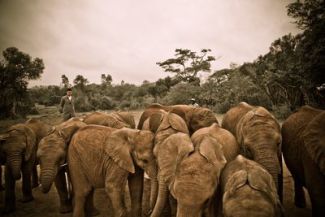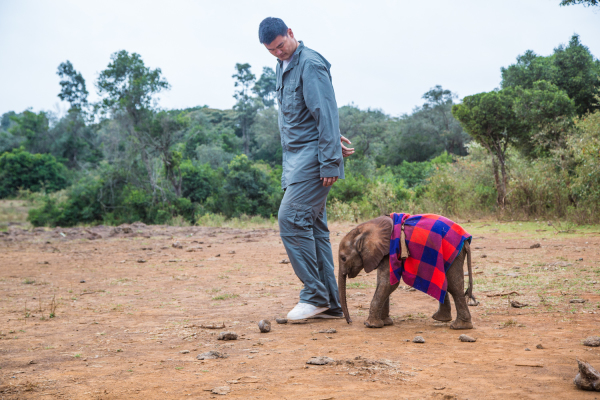INTERVIEW: WildAid’s Peter Knights offers expertise on Yao Ming’s ivory TV special

Saving Africa’s Giants With Yao Ming is set to premiere 10 p.m. Tuesday, Nov. 18 on Animal Planet. The special follows the former NBC star as he heads to Africa to investigate the needless slaughter of elephants and start asking important questions about the global ivory industry.
The special, narrated by actor Edward Norton, documents Ming’s personal realization about his home country of China, which, according to Animal Planet, is the number one consumer of illegal ivory. The United States is in second place. The documentary finds Ming traveling to both Kenya and South Africa to see the devastation himself. Statistics show that 4.5 million elephants have died in the past six decades, and the rhino’s plight is equally distressing. The mega fauna of the world are facing seemingly insurmountable obstacles, yet their historic plights are trying to be stopped — once and for all.
Peter Knights is executive director of WildAid, an organization determined to end the illegal wildlife trade. According to his group, the dollar signs behind the illegal wildlife industry are mind-boggling: $10 billion per year.
Recently Hollywood Soapbox exchanged emails with Knights about the TV special. Answers have been slightly edited for style.
Why is bringing awareness to the plight of elephants an important issue to you?
There is a real threat that elephants could shortly be wiped out in West and Central Africa and drastically depleted in East Africa. For rhinos it’s even worse. Vietnam saw its last Javan rhino killed in 2010. Africa’s western black rhino was declared extinct in 2011. The northern white rhino is already extinct in the wild, with only six highly protected animals left. One of two of the last breeding white rhino males died this year.
What do you hope to achieve with this TV special?
A ban on the legal sale of ivory could be the biggest single step taken to reduce poaching, and we hope that China will rise to the challenge and be a global leader. The U.S. is also a market for ivory, and Vietnam is the largest market for rhino horn. This is a global problem that requires global solutions, from both individuals and governments. Prominent people attract more media attention and reach a far broader audience, and we hope Yao’s deep commitment to conservation issues that has been vital in reducing shark fin consumption by 50-70 percent in China can do the same for elephants and rhinos.

How can the average viewer help the elephants?
We’re asking people to go to ivoryfree.org and to take the Ivory Free pledge to never buy or accept ivory, and to encourage their governments to enact stronger domestic bans on the ivory trade.
Will you continue to bring awareness to wildlife with future projects?
We just aired the Chinese version of Saving Africa’s Giants With Yao Ming on China Central Television in August, and we’re ramping up our TV and print ads. We think Yao can do the same for elephants and rhinos as he has for sharks. We surveyed in China last year and found that 85 percent of the Chinese consumers said that they had given up shark fin soup within the last two years. We hope to continue to make a difference.
By John Soltes / Publisher / John@HollywoodSoapbox.com
-
Click here for more information on Animal Planet’s TV special and WildAid.

